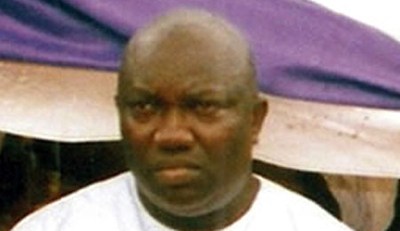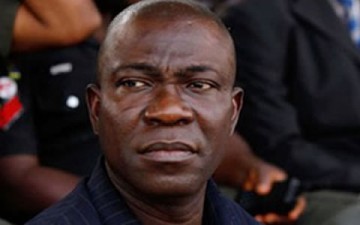In the kind of politics played in our clime, political leaders do not necessarily have to be popular among the people they lead. It is in deed seldom that you find leaders who genuinely care for the desires and aspirations of the people. What we often have are self-serving persons who show up just before elections with all manner of promises they do not hope to fulfill.
The typical politician lives in his own illusive world, where the rest of the people are objects that help him attain his dreams. Trinidad-born, Nobel Prize-winning writer, V. S. Naipaul, in his novel The Mimic Men, captures the common nuances of this world, which subjugate the needs and desires of the people to the narrow end of the politician. Naipaul in this work appeared to have drawn much materials from Nigeria.
Incidentally, people are made great by the sacrifices they make for common good of their people, not by wealth wrongly acquired by stealing from the commonwealth.That is why Nigerians remember and venerate Late General Murtala Muhammed who died a few months after he became Head of State, for the uncommon passion he exhibited in seeking the good of Nigerians; while Sani Abacha who had uncanny apatite for embezzling state fund is denigrated and vilified. The same reason why Nelson Mandela, who spent 25 years in prison in the struggle for the emancipation of his people from the strangle-hold of apartheid, and by his own choice chose to serve only one-term as president of independent South Africa, is a world hero today.
There are all manner of charlatans in the political space. But the people know those who are real. And when they appear at the scene even the heavens collude with men to install them kings or leaders. Chief M.k.O Abiola was a multi-billionaire, who ordinarily like most of his ilk would care less about the poor and less privileged. But he had a heart that reached out to people beyond tribal barriers and boundaries. His was a remarkable sensitivity to the welfare of men of all creed and ages. He helped individuals; he helped families; just as he helped communities in need. Though a Muslim, he helped mosques, just as he helped churches. He assisted Muslims, just as he aided Christians. The Egba-born business mogul simply had a heart gold. And when he ran for presidency in 1993, Nigerians paid him obeisance: unprecedented level of support. He won majority votes across all geopolitical and religious divide because both the rich and the poor could connect with him. Nigerians felt empathy for the man who was their brother, friend and benefactor.
Chief Sam Mbakwe was of kindred spirit. Mbakwe also loved his people and helped them, though in a different way. He was passionate about the common people, and were there for many of them when they were in need. As a lawyer he was said to have defended many that could not afford legal fees. After the Nigerian civil war, he became a cult hero in Igbo land, fighting the cause of his people in reversing the abandoned property misnomer against his people, which earned him the name, Mr. Abandoned Property. When he ran for the governorship of Imo State, he won landslide.
Incidentally, when both Abiola and Mbakwe were doing all these, they were not propelled by any self-serving reward. It was just the passion to be their ‘brothers’s keeper.’ The people’s support when they needed it was just a prize won, which was not an impulsion for their good deeds.
From stories I have heard about him, I dare say that the People’s Democratic Party (PDP) governorship candidate for Enugu State Honourable Ifeanyi Ugwuanyi has evinced a similar idiosyncrasy. He has shown himself as one of the uncommon brand of politicians that really care for the people they represent and or lead. He may not be as rich and well-known as Abiola and Mbakwe earlier cited, but in the little world of Igbo Eze North/ Udenu Federal Constituency which he represents at the House of Representatives, Ugwuanyi has done things equally noble.
He has shown that rare sensitivity to the cares and concerns of the people. I have heard from his constituents of how he paid school fees for people he never met or knew on the strength of a mere telephone call soliciting his help. I have heard too how he put some half-educated politicians in his Igbo Eze North/ Udueni Federal constituency on scholarship and saw them through their university education. Some have become lawyers, accountants, etc.
In one spectacular case, one poor parent who had an undergraduate son was hard put on how to pay his sons school fees. And it was just a few days before his son’s exams. In his desperation, he had sought help from anybody who was ready to listen to his story. But none was really ready to help. By some fight of thought , one young man suggested tapping on ‘Gburugburu’ (as Ugwuanyi is popularly called) based on the young man’s knowledge of Ugwuanyi’s prodigious magnanimity. The parent who was from Enugu-Ezike could not comprehend how he could carry his trouble to a man from another town, who neither knew him or had any connections with him. However, after some persuasion he agreed to put a call through to Honourable Ugwuanyi.
As if he was anticipating the call (as the story goes), Ugwuanyi picked the call, listened to the man briefly, and told him not to worry, that he would do his own bit. The next day he transferred the needed amount to the man’s account. And that meant a world to the man, who was able to pay his son’s fees.
Similarly, a retired policeman who was into pineapple farming needed to obtain a world Bank assisted credit for his farm. This man who also hails from Enugu-Ezike could not muster the capital to invest on the farm to meet stipulated guidelines for the loans. He sought help from all persons he thought could help him, including all the elected and appointed political office holders from his town, and they all failed. It was Uguwanyi, who shelled out N350,000 to the man on short notice, which enabled him fulfill the requirement for the loan.
Think of this one, which some people believe laid the spiritual foundation of Ugwuanyi governorship run. It happened at a community church in Ette, an Igala-speaking area of Igbo Eze North. He was invited to a fundraising event by the church. For some reasons, most of the important personalities invited along with him including politicians of note in the state did not show up. But Ugwuanyi did not only come but stunned the church with a personal donation of N1 million in cash. The priest and the parishioners were simply overjoyed. And they prayed for him. One of the prayer points was that God should remember this man that remembered their community. They specifically asked that God should make him governor.
Prayers for the spiritually unschooled might just be empty words. But those who believe think differently. I should guess that this prayer was the invincible hand that guided Governor Sullivan Chime and all that played a part in the choice of Ugwuanyi as a consensus candidate of the party. And barring any upset, the overwhelming popularity he now enjoys in the state indicates that he might just be a few months away from the Government House.
When Ugwuanyi was announced as the consensus candidate of his party on September 26, 2014, his name was not a hugely popular one. It was more like Ifeanyi, who? Some had thought and even said that his little world of representing the northernmost federal constituency of Enugu State in the House of Representatives might just be too small for the bigger space of the government house.
But as the stories about him began to unfurl, many have wondered why they had hitherto not known about him. Ugwuanyi is said to be open to the rich and the poor, and accords everyone with his her deserved respect and dignity. He is not like the typical politician who gets the people’s votes but distances himself from them until another round of elections. Ugwuanyi has been at home with the people that voted him to office, and has been open to address their needs both officially and unofficially.
That is why his candidacy gained immediate, and unprecedented state-wide traction.












